Drug Addiction Treatment in Boston
Boston drug rehab for in-patient and out-patient drug detox and alcohol treatment. Addiction and chemical dependency recovery program near Boston MA. Drug and Alcohol Rehabilitation techniques used in our Suffolk rehab and detox centers near Boston. Programs for drug and alcohol abuse that include inpatient and outpatient recovery for addiction are explained as well as the benefits and drawbacks of both. Many health insurance providers will pay for alcohol and drug rehab. Call us to find out what options are available for you.
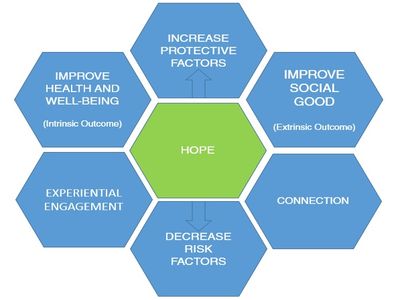
Mental Dependency – What Is Psychological Reliance?
The term psychology is typically meant to describe behavioral procedures that connect to the emotions or the mind. The term emotional reliance is typically implied to explain the emotional as well as mental processes that are connected with the growth of, and recovery from, a compound use condition or drug addiction. Nevertheless, there could be no total splitting up of feeling and also cognition from physiology. To imply that “mental dependency” is not as severe as “physical reliance” stands for a misconception; actually, these 2 classifications do not exist as mutually exclusive classifications as well as therefore can not be contrasted as if they exist independently from one another.
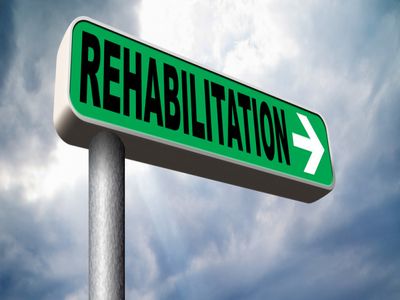
Substances related to Mental Reliance
The basic observation here is that materials of abuse are connected with both psychological and also physical elements of dependency; however, several sources divide the aspects of the growth of a material usage problem and the withdrawal process into compounds that are related to withdrawal signs and symptoms that are largely mental in nature. Commonly, these substances consist of:
The majority of stimulants, consisting of drug as well as Ritalin
A lot of hallucinogenic medicines, such as LSD
Marijuana items (although there is mounting evidence that there may be a significant physical procedure of withdrawal that happens in persistent customers of marijuana products).
Many inhalant items.
Several psychotropic drugs, such as antidepressant medicines.
Treat of mental reliance
One essential difference that can be made regarding the difference in between medicines that are thought about to cause physical versus psychological reliance is that the withdrawal procedure from a few of the drugs that are taken into consideration to be solid candidates for physical reliance, such as alcohol, benzodiazepines, as well as barbiturates, can result in the advancement of potentially fatal seizures. Nevertheless, this condition does not typically occur with withdrawal from opiate medicines, which are likewise taken into consideration to be incredibly physically addictive. The recovery procedure for individuals that have established compound use problems to these materials should be strictly kept an eye on by a doctor or psychiatrist that concentrates on dependency medication to recognize any kind of possible seizure task as well as right away address it.
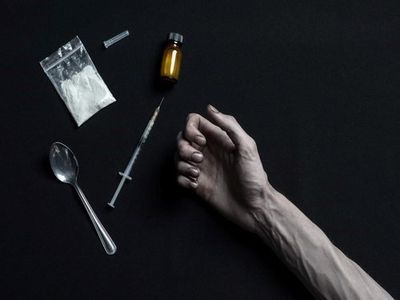
Types of Rehab in Boston
Drugs
A number of medications have actually been located to be efficient in treating addiction to opioids, alcohol, or pure nicotine in adults, although none of these medicines have been authorized by the FDA to deal with teenagers. Newer substances proceed to be researched for potentially treating compound use disorders in adults as well as teenagers, but none other compared to those detailed below have actually revealed conclusive outcomes.
Keep in mind that there are presently no FDA-approved medications to treat dependency to cannabis, cocaine, or methamphetamine in any age.
Buprenorphine minimizes or eliminates opioid withdrawal symptoms, including medication food cravings, without generating the “high” or hazardous negative effects of heroin and also various other opioids. It does this by both triggering and also obstructing opioid receptors in the mind (i.e., it is exactly what is referred to as a partial opioid agonist).

Methadone additionally prevents withdrawal signs and also decreases food craving in opioid-addicted people by triggering opioid receptors in the mind (i.e., a complete opioid agonist). It has a long history of usage in treatment of opioid dependence in grownups and is available in specially qualified methadone therapy programs. In pick situations as well as in some States, opioid-dependent adolescents between the ages of 16 and also 18 might be qualified for methadone therapy.
Residential Drug Rehabilitation in Boston
Sixty-two percent of those that had expert assistance in treating their dependency remained in healing for three years after treatment, contrasted to just 43 percent of those that didn’t get therapy. This reveals that getting specialist treatment is vital to getting to the ideal result.
Residential Boston drug rehab particularly is frequently extra valuable due to the fact that it needs that the individual stay in therapy for the quantity of time required to influence modification.
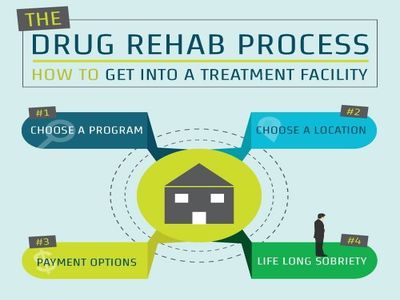
In the NIDA post it is mentioned that a crucial component of drug addiction therapy is staying in therapy long enough to finish the numerous components of the program, due to the fact that this enables people to arise with the highest degree of confidence in their newly discovered skills as well as tools for remaining in healing. Because of this, each of the parts of a high-grade treatment program functions best when it is developed to assist people survive the entire therapy procedure.
Residential rehabilitation offers 24-hour treatment in a setting where the focus is helping individuals achieve and also maintain healing from drug addiction. As a result of this, these programs are able to provide a breadth of services that are more likely to assist customers establish capacities as well as tools to stay in recovery well after leaving the program. These consist of:
Clinically supported detoxification as well as withdrawal, if needed.
Clinically supported upkeep treatment, if needed.
Individual treatments, such as Cognitive Behavioral Therapy.
Family or pairs counseling.
Structure skills as well as devices that are needed permanently message therapy.
Follow-up care after the formalized program ends.
Outpatient Treatment
Outpatient rehabilitation permits clients to live in the house as well as take part in therapy at an outpatient facility during the daytime. This type of program manages people more freedom in therapy, providing clients the ability to maintain a job and stay up to date with daily responsibilities in your home. Those just beginning outpatient care could require everyday sessions with a therapist or scientific staff, while those further along in recovery (or with much less serious dependencies) might achieve success with part-time sessions one or two times per week.
Outpatient programs normally last anywhere from one to 3 months, as this is the window of time where those in healing are most prone to relapse. The length of time a customer invests in outpatient treatment relies on their progress in recovery, which takes into account their mental stability and physical wellness.
An outpatient drug rehab program uses drug and alcohol therapy sessions that could be scheduled throughout different times throughout the week. This schedule allows patients to proceed with their routine responsibilities and proceed living at home, however they are required to look into therapy at their assigned times for therapy and medicines.
Recovery
Recuperation is a goal of alcohol treatment, as well as recovery-oriented systems of treatment are being created to support that goal. People who are “in recuperation” understand exactly what it means to them as well as exactly how crucial it is in their lives. They require no official definition, but for the public and those that research study, assess, and also create plans concerning addiction, recovery is an idea that could often appear vague.
Basically, recovery is a facility as well as dynamic procedure including all the favorable benefits to physical, psychological and social health and wellness that can occur when people with a dependency to alcohol or medicines, or their member of the family, get the assistance they require.
Counseling
Counseling is an essential part of substance abuse therapy for lots of people. Cognitive behavior modification, family counseling, as well as various other treatment approaches could assist people recovering from opioid addiction stay clean.
Twelve-step Programs
The 12-Step ideology spearheaded by Alcoholics Anonymous is utilized by regarding 74 percent of treatment. Several dependency therapy programs offer choices to 12-Step methodology for those who like an even more secular structure for therapy.
SMART Recovery
SMART Recovery is an abstinence-based, not-for-profit organization with a reasonable self-help program for individuals having problems with alcohol consumption as well as using. SMART Recovery is not a spin-off of Alcoholics Anonymous. When you succeed at following our method, you may graduate from the program, or you may remain around to aid others.
Client-centered strategies
In client-centered substance abuse therapy, you could assist decided features of your drug dependency therapy plan consisting of:
- The rate at which you progress.
- The size of your keep.
- The objectives of your program.
Together with professional staff the addict identifies exactly what they wish to get out of their remain. Every week, you and also your individual specialist will examine your medicine dependency treatment and make a decision whether you are reaching your objectives, failing or exceeding them as well as readjust your treatment plan appropriately. The partnering is really crucial below- your goals are your roadmap via treatment.
Psychoanalysis
The psychoanalysis view recommends addiction is basically a disorder of self-regulation. Addiction is described as a protective approach to prevent feeling of helplessness or powerlessness. Substance abuse is a futile attempt to compensate for internal emptiness without success. The addict aims to compensate via addictive behavior for agonizing subjective states of reduced self-worth, uncertainties and also anxiousness. Using medications supplies a sensation of acceptance and feeling of short-term self-assured. Addict replaces a fictional globe, where he is in full control, for the real world, where he feels pointless and also unmanageable. Repeated use of medicines to get relief ends up being a way of living. Alleviation is temporary, however in the long-term drug use comes to be an end in itself. The dependency issue avoids the customer from understanding concerning her distress, as well as the advancement of psychological capacity to self-soothe.
Regression prevention
An influential cognitive-behavioral method to dependency healing and also treatment has been Alan Marlatt’s (1985) Regression Avoidance technique. Marlatt defines 4 psycho-social processes appropriate to the dependency and also regression procedures: self-efficacy, outcome spans, attributions of origin, and decision-making procedures. Self-efficacy refers to one’s capability to deal competently as well as efficiently with high-risk, relapse-provoking scenarios. End result spans refer to an individual’s assumptions regarding the psychoactive impacts of an addicting compound. Attributions of causality refer to a person’s pattern of beliefs that relapse to substance abuse is an outcome of interior, or rather exterior, short-term causes (e.g., permitting oneself to make exceptions when confronted with exactly what are judged to be uncommon scenarios). Lastly, decision-making processes are linked in the relapse process also. Compound use is the result of multiple choices whose collective impacts cause intake of the intoxicant. Marlatt emphasizes some choices- referred to as apparently unimportant choices- might seem inconsequential to relapse however might actually have downstream ramifications that put the customer in a high-risk circumstance.
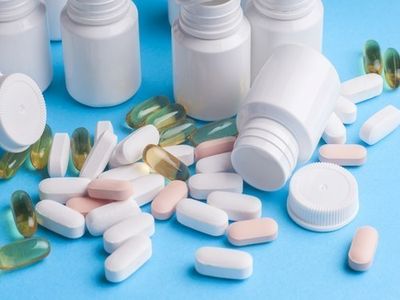
As a result of hefty freeway traffic, a recouping alcoholic may decide one mid-day to leave the highway and also traveling on side roads. If this individual is able to utilize effective coping techniques, such as sidetracking himself from his food cravings by transforming on his preferred songs, after that he will certainly prevent the relapse threat (COURSE 1) and enhance his effectiveness for future abstaining. If, however, he does not have coping devices- for circumstances, he might begin pondering on his food cravings (PATH 2)- then his efficacy for abstinence will lower, his expectations of favorable end results will increase, and also he could experience a gap- a separated return to substance intoxication.
Dual Diagnosis and Rehab
When an individual is identified with both a drug abuse condition and also a mental health and wellness problem, then it is labelled a Double Medical diagnosis. Usual mental health disorders that tend to take place together with addiction include:
- Anxiousness disorders.
- Modest to extreme depression.
- Individuality conditions.
- State of mind problems.
- Schizophrenia.
As they end up being much more and much more frustrating, the client may attempt to “treat” those signs by using different medications. Alternatively, a person dealing with an eating disorder may attempt to advance their weight loss attempts by abusing energizer medicines like drug or crystal meth.
In various other situations, the drug addiction comes first and also as a result of chronic substance abuse, mental health and wellness issues could develop later because of the fact that drug use changes brain feature over time.
Sober Living Home
Sober living houses are team residences for those recuperating from a dependency. Most of these homes are independently owned, although some group houses are had by companies and also could even be possessed by charity companies. Residences are typically found in silent locations in order to help ensure a tranquil environment for individuals in very early recovery.
These sorts of homes are different from rehabilitation centers; rehabilitation centers usually use a more intensive recovery experience and also offer locals less flexibility. People who reside in sober living centers could normally come and go as they please as long as they adhere to certain regulations. Sober living residences might call for homeowners to be house by a particular time or to go to function throughout the day. Homeowners may likewise undergo regular medication testing to demonstrate ongoing soberness.
